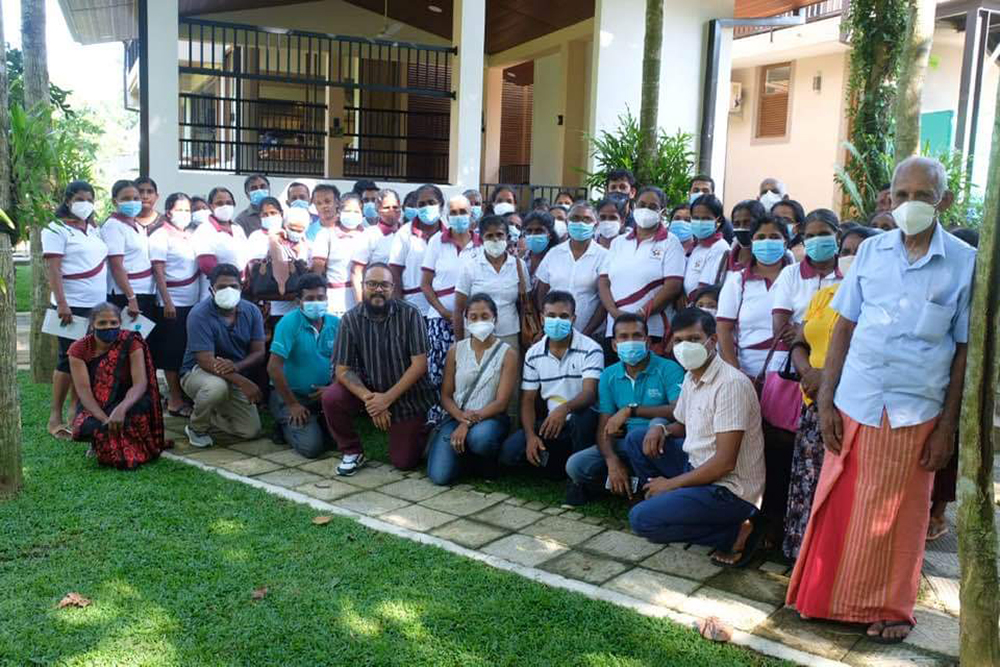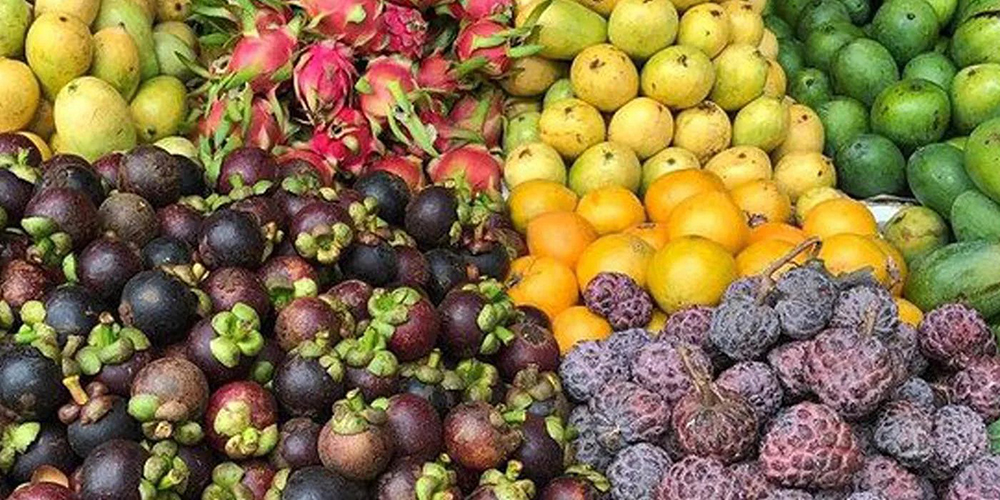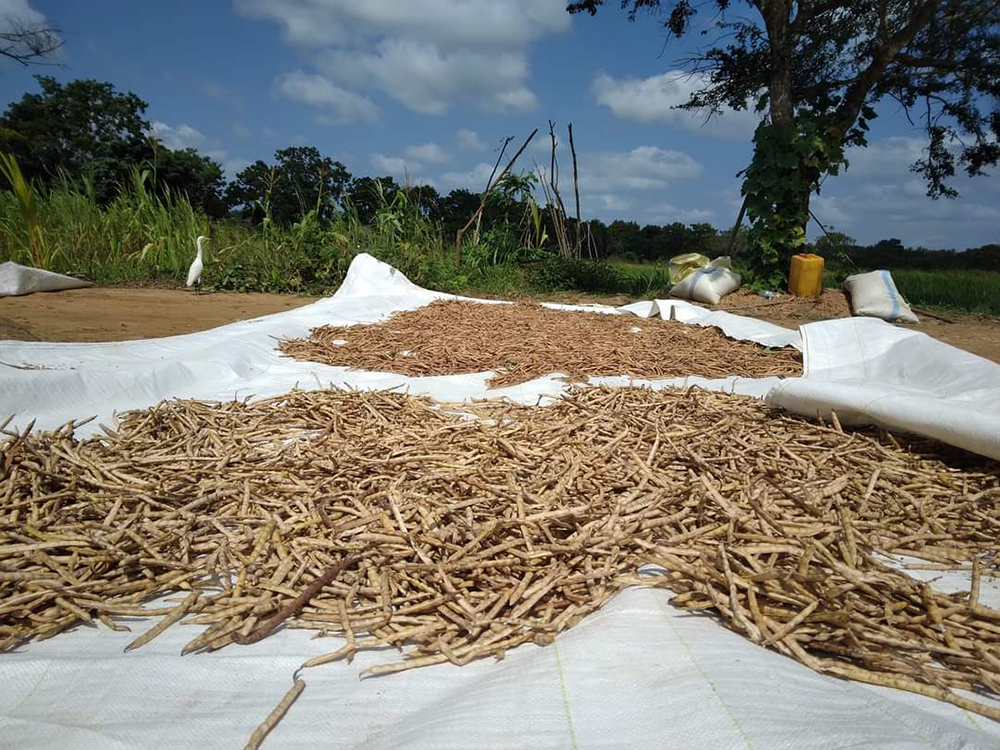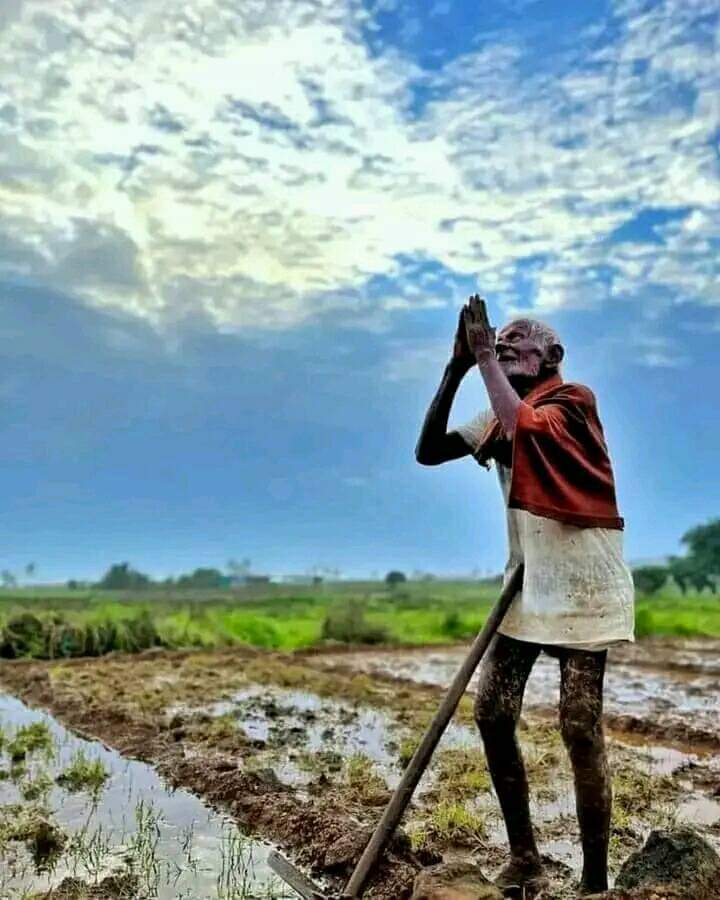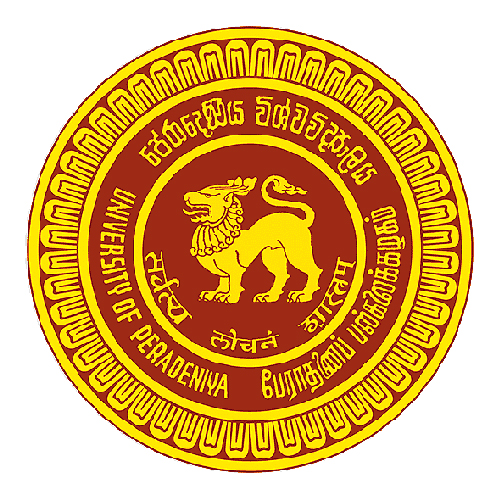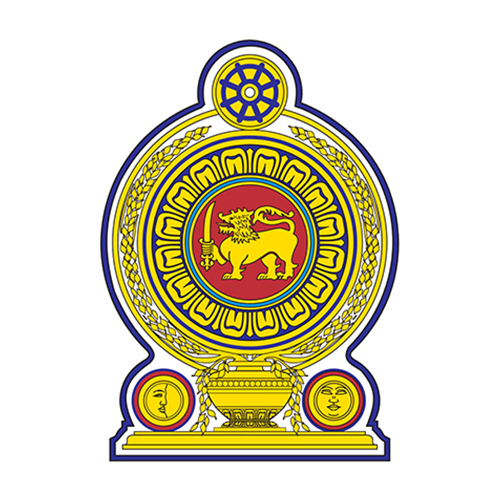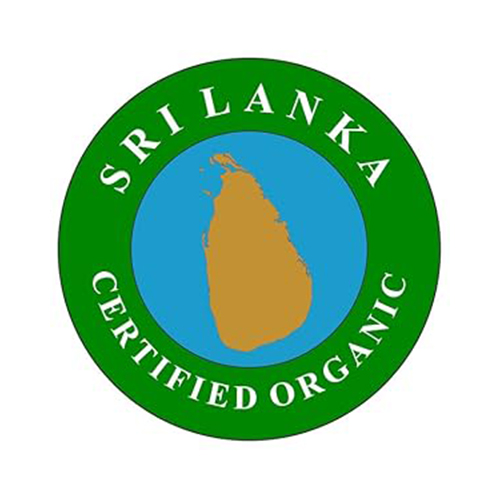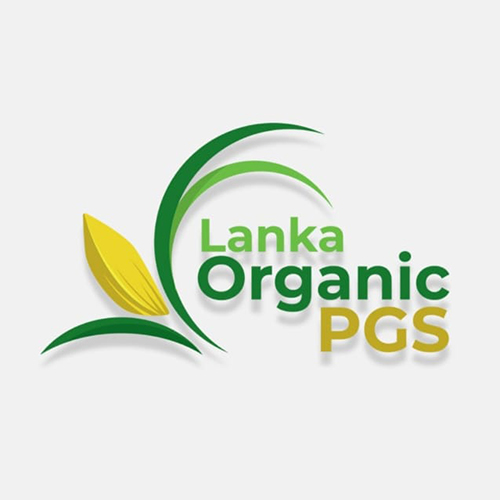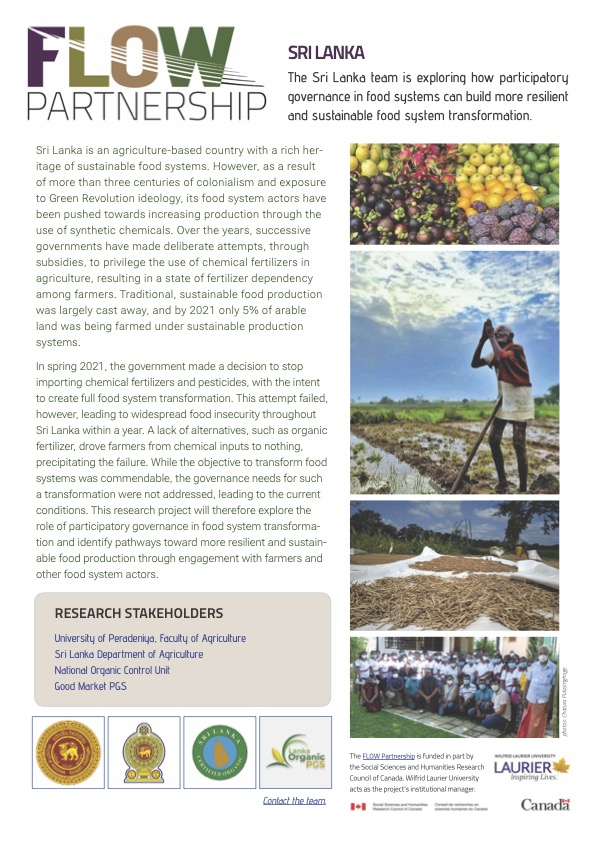Sri Lanka
The Sri Lanka team is exploring how participatory governance in food systems can build more resilient and sustainable food system transformation.
Sri Lanka is an agriculture-based country with a rich heritage of sustainable food systems. However, as a result of more than three centuries of colonialism and exposure to Green Revolution ideology, its food system actors have been pushed towards increasing production through the use of synthetic chemicals. Over the years, successive governments have made deliberate attempts, through subsidies, to privilege the use of chemical fertilizers in agriculture, resulting in a state of fertilizer dependency among farmers. Traditional, sustainable food production was largely cast away, and by 2021 only 5% of arable land was being farmed under sustainable production systems.
In spring 2021, the government made a decision to stop importing chemical fertilizers and pesticides, with the intent to create full food system transformation. This attempt failed, however, leading to widespread food insecurity throughout Sri Lanka within a year. A lack of alternatives, such as organic fertilizer, drove farmers from chemical inputs to nothing, precipitating the failure. While the objective to transform food systems was commendable, the governance needs for such a transformation were not addressed, leading to the current conditions. This research project will therefore explore the role of participatory governance in food system transformation and identify pathways toward more resilient and sustainable food production through engagement with farmers and other food system actors.

